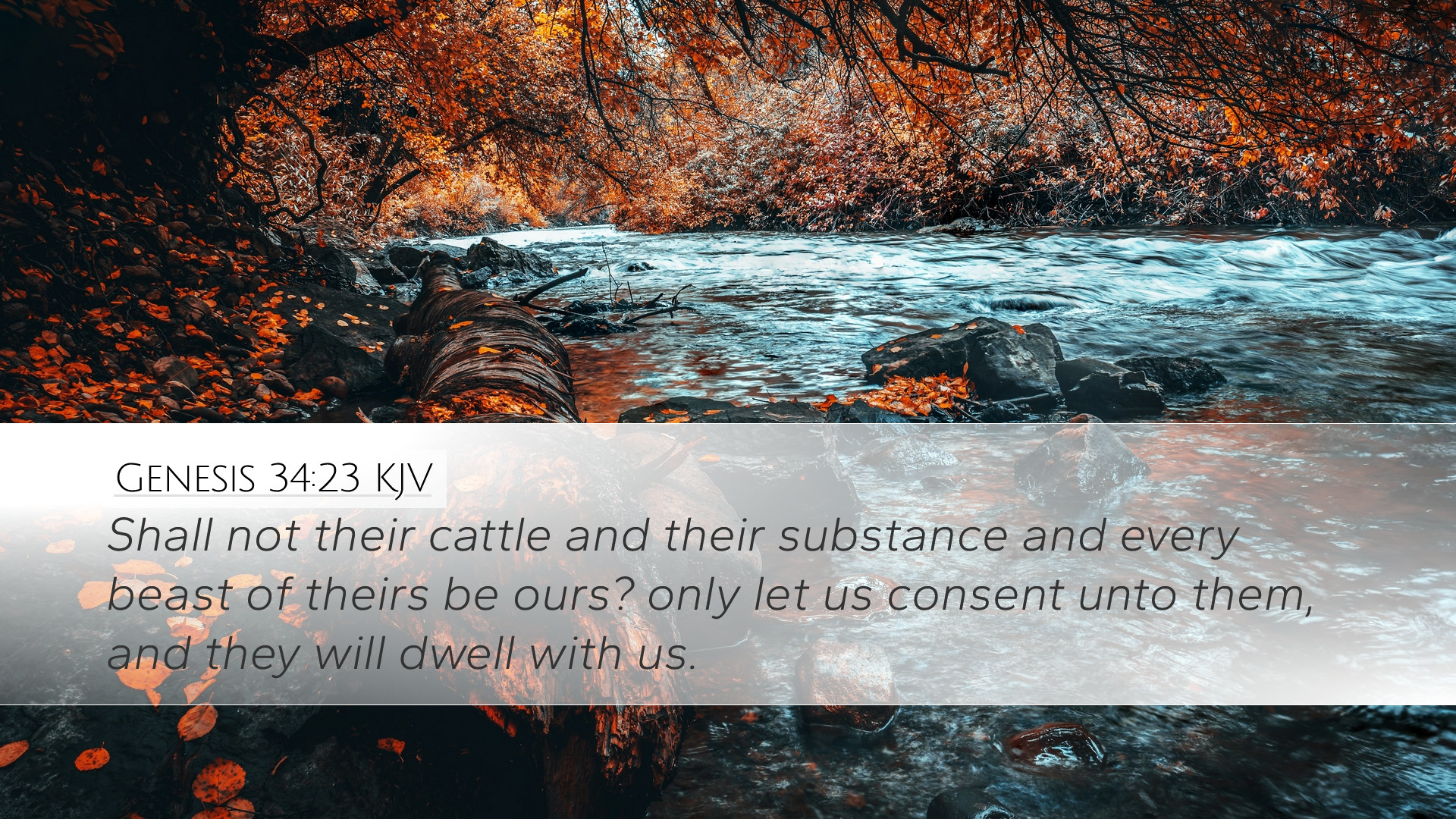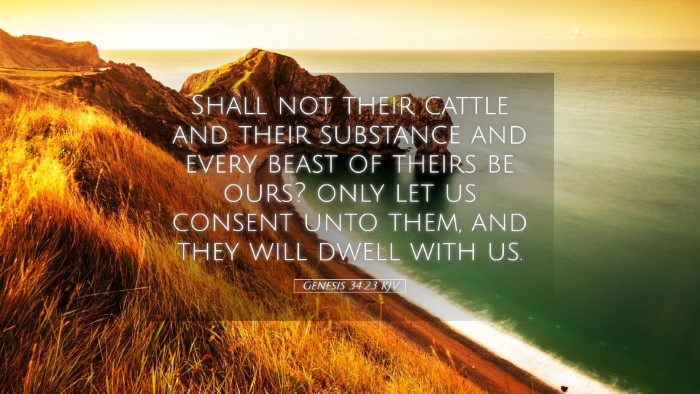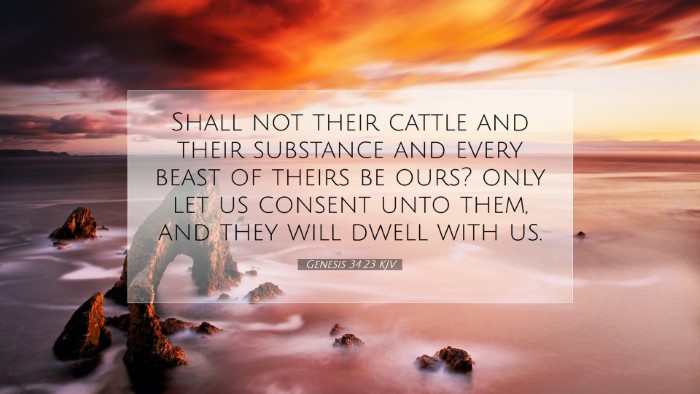Commentary on Genesis 34:23
Genesis 34:23 states:
"Shall not their cattle and their substance and every beast of theirs be ours? Only let us consent unto them, and they will dwell with us."
This verse captures a pivotal moment in the narrative surrounding the events following the violation of Dinah, the daughter of Jacob. The implications of this verse prompt deep reflection on various theological, social, and ethical dimensions.
Historical Context
The events of Genesis 34 unfold in Shechem, where Dinah, the daughter of Jacob and Leah, is violated by Shechem, the son of Hamor the Hivite. Hamor offers a proposal for marriage and a covenant between the families. The verse in question reflects the pragmatic and utilitarian considerations of Hamor and Shechem, emphasizing their desire for economic and social advantage.
Commentary Insights
1. The Machinations of Hamor and Shechem
Matthew Henry, in his commentary, highlights the shrewdness of Hamor and his son, Shechem. They recognize the value of Dinah's family not just in terms of marital alliance, but as a strategic economic move. They foresee that uniting with Jacob’s family could enhance their wealth—hence, Shechem extols the advantages that such a union would yield, mentioning his desire for herd and produce.
2. The Moral Dilemma
When considering the implications of acquiring Jacob's wealth through deception and manipulation, Albert Barnes stresses the moral laxity present in Hamor's proposition. He notes that the act of consent is couched in the allure of economic gain, which reveals a significant ethical inconsistency. The seductive nature of material prosperity often leads to moral compromise.
3. The Covenant of Convenience
Adam Clarke points out that the proposed arrangement appears to be a covenant based on convenience rather than conviction. It raises questions about the sincerity of the commitments made by both parties. The impending union between the daughters of Jacob and the men of Shechem represents a superficial condition rather than a genuine alliance that honors God’s design for relationships.
Theological Reflections
1. The Dynamics of Power and Control
The power dynamics illustrated here by Hamor and Shechem also serve as a critique of the transactional nature of some relationships. The exploitation of Dinah and the subsequent plans for her marriage reflects both patriarchal control and the commodification of women. This provokes a deeper inquiry into how modern relationships can sometimes reflect similar transactional aspects.
2. The Danger of Compromise
Covenantal relationships in Scripture are grounded in fidelity and faithfulness. Hamor’s invitation to compromise highlights the dangers posed by alliances forged through insincere means. This echoes throughout biblical history and serves as a reminder of the pitfalls that can arise when believers sacrifice their values for perceived socio-economic benefit.
3. God’s Sovereignty Over Human Affairs
While this verse shows human scheming and the quest for gain, it also underlines God’s sovereignty amid human depravity. The narrative ultimately reveals how God can weave elements of human failure into His divine plan. This alludes to the broader themes throughout Genesis where God works through the flawed decisions of humanity to achieve His purposes.
Conclusion
Genesis 34:23 encapsulates a rich tapestry of insights pertinent for pastorship, scholarship, and theological examination. Through the lens of Henrician morals, Barnesian reflections on ethics, and Clarkean inquiries into sincere covenantal relationships, this verse serves as both a cautionary tale and a profound insight into human nature. It sacredly challenges its readers to discern where their consent lies in matters of faith, ethics, and communal relationships.
Application for Pastors and Theologians
- Pastoral Care: Address the ethical considerations of consents made for convenience, guiding congregants towards genuine commitment.
- Teaching and Preaching: Use this narrative to illustrate the importance of faithfulness, integrity, and the inherent worth of individuals beyond the realms of economic value.
- Scholarly Study: Encourage further research into the socio-economic realities of ancient cultures and their interaction with biblical principles.


